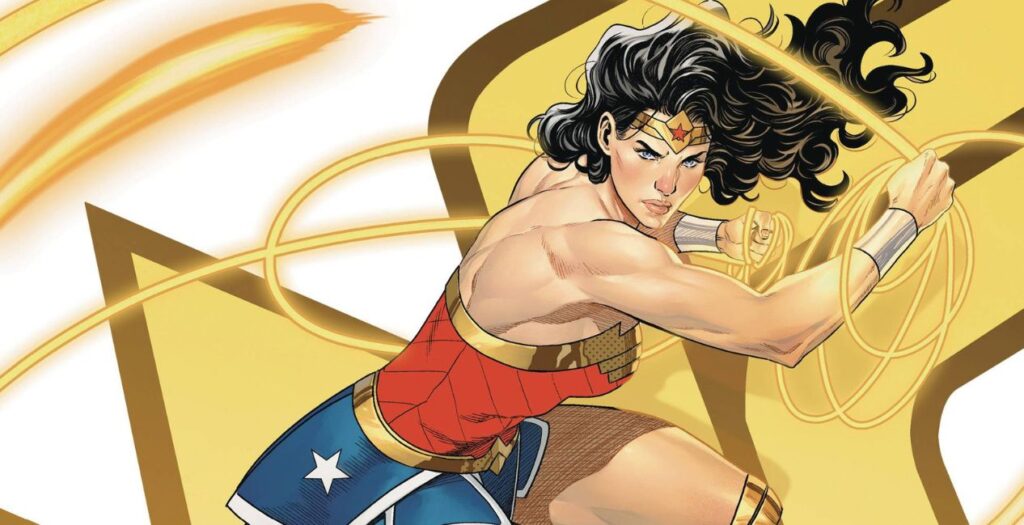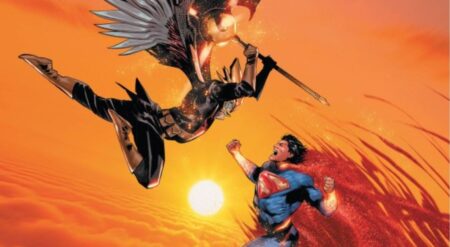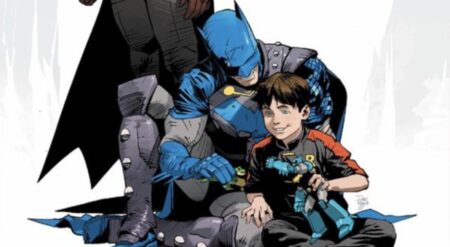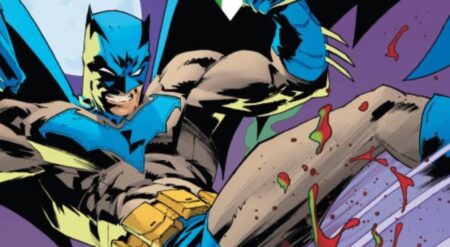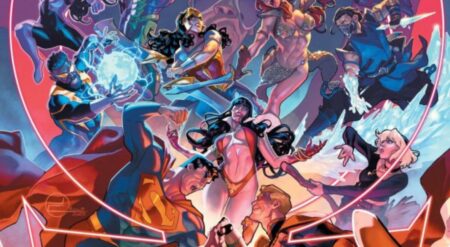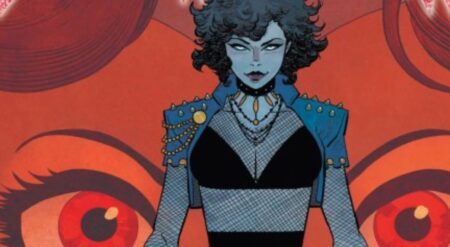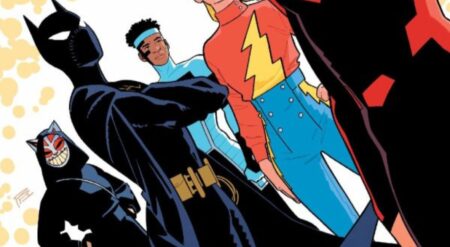Wonder Woman #14 is published by DC Comics, written by Tom King, art by Daniel Sampere, colors by Tomeu Morey, and letters by Clayton Cowles. This issue is part of DC’s All-In initiative. Wonder Woman retreats from the world as she loses the person she loves the most.
This is an issue with enormous change. King approaches Wonder Woman #14 with an intriguing structure. It bounces around points in time, telling the story through unconventional means. The most surprising part of the comic happens early, allowing the rest of the issue to be about reaction and aftermath. The time jumps are brilliantly organized and easy to figure out because there is a whole panel dedicated to saying what day it is. This chapter does not have action but features heaps of drama and emotion.
A pivotal moment in Wonder Woman’s history is made here as she loses someone integral to her sanity and social life. There is a serene, stunned feel to the pages after, trying to come to terms with what has happened. There are multiple threads and layers to this single story. There is the part that connects to a Wonder Woman comic, with most of her supporting cast appearing. Then there is the broader DC Universe story, displaying the All-In Era’s new elements and the Justice League’s return.
Finally, Wonder Woman is reconnected to Greek mythology, which helped deal with the loss. The end of the issue finally answers a question hanging over the series from the beginning, and it feels poignant and hopeful.
Wonder Woman #14 turns the tables on the title character. Diana is known for her strength and compassion, especially when others are at their worst. But this issue sees her experiencing tragedy and exploring how she would handle it. For much of the book, Wonder Woman is alone, silently struggling through her agony.
The chapter is narrated by the Sovereign, an evil, secretive organization that has been trying to destroy Wonder Woman during King’s run. Their contemplative, honest narration style is insidious and haunting while ultimately friendly. When there is dialogue, it ranges from understanding what’s happened to a level of desperation that stems from being utterly devastated.
The art in Wonder Woman #14 is fantastic. Sampere brings his passionate, gorgeous style to an issue that requires sensitivity. The best part about that style is that it looks authentic, grounding the book. The people, the locations, and the settings all have intricate details. This issue can be peaceful, matching the methodical pace that King has within many of his issues.
The sadness radiates Wonder Woman #14 subtly and effectively. Wonder Woman doesn’t bawl her eyes out or scream, but those quiet tears streaming down her face depict her agony better than any shouting. Despite the book’s sensitivity, Sampere is also unafraid to show moments of violence, distress, and brutality. It is that that generates the state of shock that the rest of the book exists in.
The colors are grounded and stunning in Wonder Woman #14. They capture the naturalistic landscape the book is built on. The changes in the season bring more oranges and browns into the book, perfectly showing the passage of time within the issue. Naturalism fades when Wonder Woman enters somewhere and ventures into fantasy. The colors turn more serene, with an assertive purple covering the scene. The lettering has been consistently brilliant throughout, which is crucial when the dialogue is so emotional.
Wonder Woman #14 features both love and loss. The issue delivers a punch that leaves the reader dazed long after the book finishes. Of all the blows to land on Wonder Woman, a woman who is so strong, powerful, and durable, this is the one that hurts the most. It isolates and shatters the warrior princess. King and Sampere are talented enough to make such tragedy beautiful and loving, not just savage and brutal. The added romance to the book makes it feel like a Greek tragedy.
Wonder Woman #14 is available now wherever comics are sold.
Wonder Woman #14
TL;DR
Wonder Woman #14 features both love and loss. The issue delivers a punch that leaves the reader dazed long after the book finishes.

